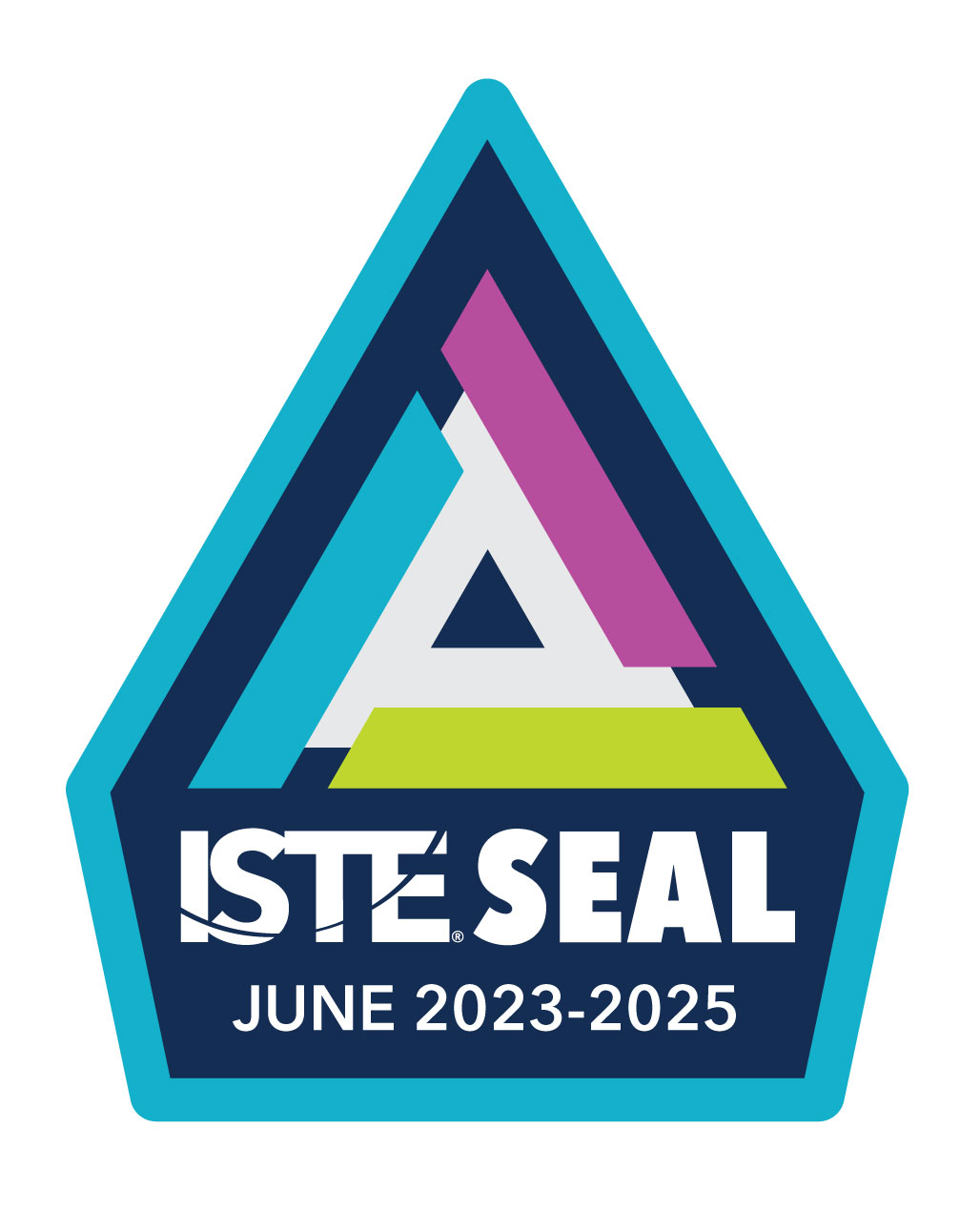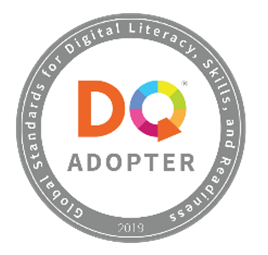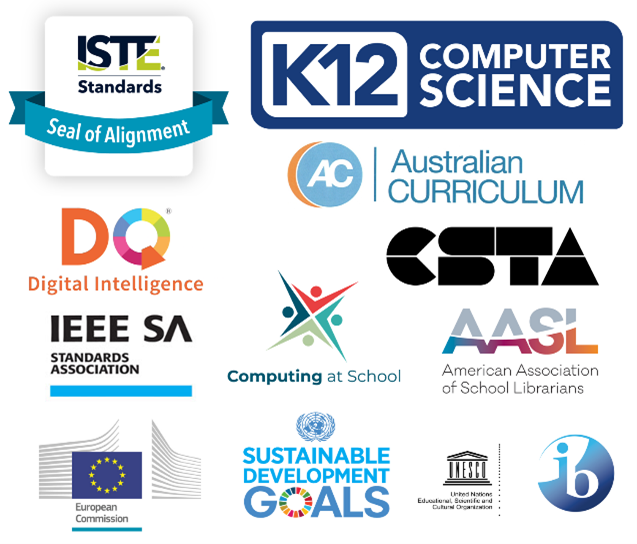Binary Logic's Digital Kids and Digital Teens constitute the first spiral Computing and ICT curriculum globally that takes care of all key 21st-century skills and real-life technology skills. The books and the relevant digital resources for students and teachers are a complete solution for all types of schools.
It is also the only comprehensive K-12 Computing and ICT curriculum covering Coding and Robotics that an independent international organisation has reviewed for its compliance with educational standards: ISTE – the International Society for Technology in Education.

In May 2014, both Digital Kids and Digital Teens series were thoroughly reviewed and awarded with the Seal of Alignment with the ISTE Standards for Students. All the series were reviewed again in 2016, 2018 and 2021 and awarded the Seal of Alignment. In June 2023, we were awarded the Seal again, covering all the material of our series, including Can Code and Robotics. The ISTE Seal is renewed every two years as technology moves fast, and ICT textbooks cannot be treated like math or science textbooks. We are in the process of similar reviews by other international organisations and exam bodies.

Our curriculum follows the latest international Computing and ICT teaching standards and considers the competencies valued around the world. All our Computing and ICT series follow and comply with the DQ Framework, the basis of the IEEE 3527.1 Standard. The world's first global standard for digital literacy, digital skills, and digital readiness – the IEEE 3527.1 Standard for Digital Intelligence (DQ) – was approved by the IEEE Standards Board in September 2020. Binary Logic is a voting member of the IEEE P1484.20.2 Defining Competency Working Group.
Additionally, our main curriculum and our custom resources are mapped against national standards and requirements in several countries. The skills learned reflect the performance standards demanded in an international context, and the material is suitable for international exam preparation.
We have researched the latest curriculum frameworks and exam specifications for Computing and ICT from various organisations extensively, such as:
Our international Computing and ICT curriculum is also compliant with the recent developments in countries like the USA (K-12 CS framework developed by Code.org, ISTE and CSTA), UK (KS1, KS2 and KS3 curriculum by Computing at School), Australia (ICT Capability), Canada and Ireland (Action Plan 2017). Binary Logic is currently developing resources for the state schools in Vietnam and Serbia based on their national curriculum standards. Binary Logic is a member of the IEEE Computer Society, ACM Special Interest Group Computer Science Education, ACM Special Interest Group on Information Technology Education and Python Software Foundation to follow as close as possible all trends and changes in Computer Science education.
While the current set of Computing and ICT curriculum standards is meant to be comprehensive, these standards are intended to be a living, dynamic document. A perpetual mechanism is in place to periodically review the structure and contents of these standards as the technology context changes and teaching/learning methodologies evolve.
Our modern Computing and ICT curriculum and the textbooks follow the international standards defined by various organisations and innovative Ministries of Education worldwide. The solution aims at achieving the following goals:
Our curriculum and our educational resources are primarily based on the latest trends of Computing and ICT teaching and learning while, simultaneously, effective elements of various teaching methods and approaches such as didactic (teacher-centered) and constructivist teaching (inquiry-based learning /learner-centered) have been incorporated. In particular, the content and methodology in our courses are characterized by the following key features:
"A computer science education is literacy for the 21st century." - September 2015, Bill DeBlasio, Mayor of New York City
